Tom's Guide Verdict
Brutal combat and solid writing lets Lara Croft become the action heroine we deserve.
Pros
- +
Entertaining puzzles
- +
Complex heroine
- +
Less gratuitous death
- +
Plentiful Save points
Cons
- -
Story fails to connect narrative themes
- -
Small open-world maps
- -
Some major disconnect between narrative and game design
Why you can trust Tom's Guide
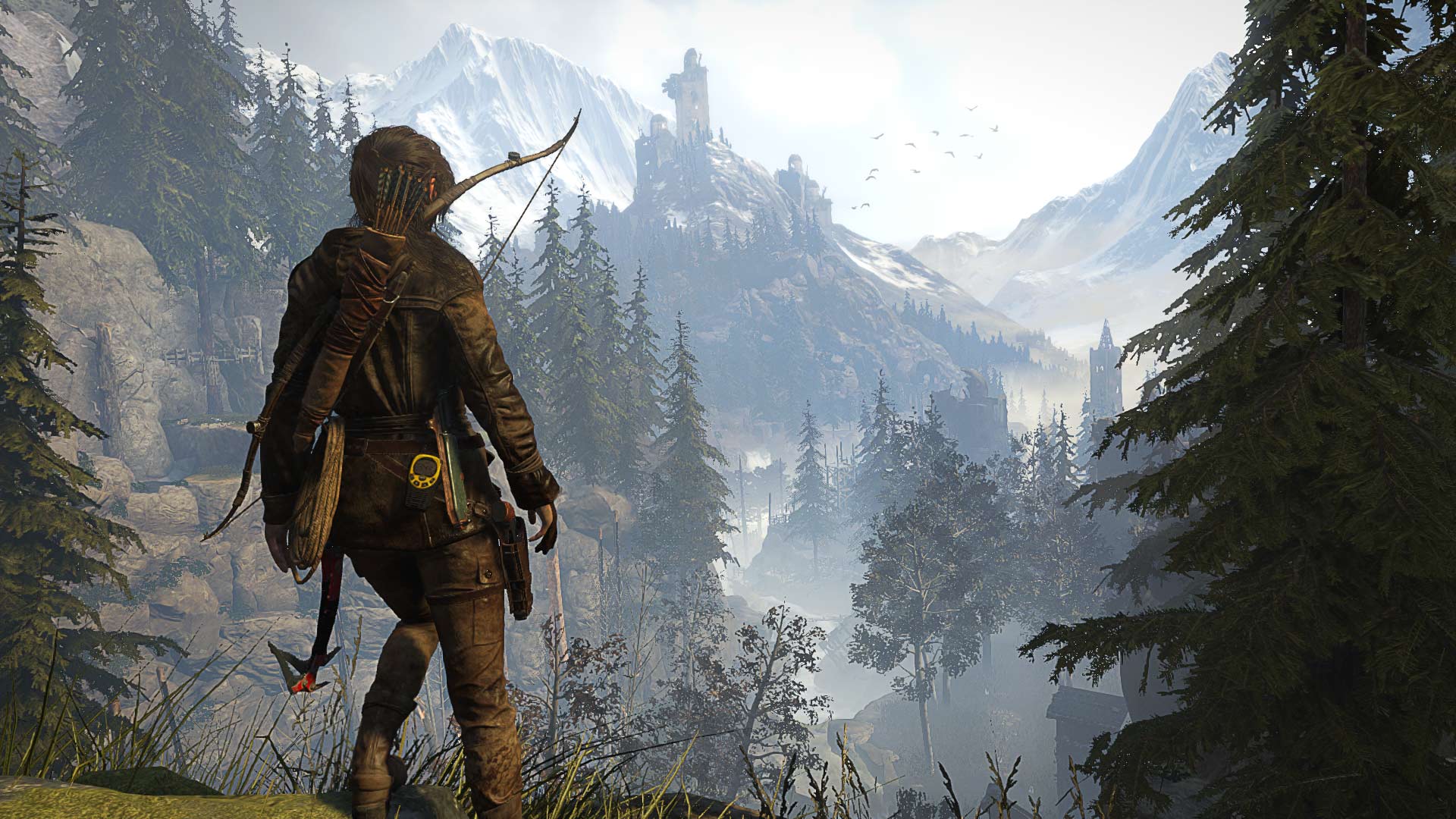
The Tomb Raider reboot in 2013 made waves, both for being the first game in the series that was legitimately fun to play, and for the aggressive desexualizing of its lead, Lara Croft. Its sequel, Rise of the Tomb Raider, continues the tradition by going a step further and crafting Lara Croft into a hero as viciously capable as James Bond, Nathan Drake or even Batman.
This game very clearly wants Lara to take on the mantle of those esteemed men. Unfortunately, a story that fails on multiple levels, and some odd design choices, nearly prevent Lara from rising to the occasion.
Lara Croft and the Failed Plot
The Tomb Raider reboot invites a lot of comparison to the popular Uncharted series. Both feature "archaeologists" traveling the world to loot precious artifacts and murder a lot of people. But whereas Nathan Drake tries to hide all his insecurities, Lara Croft is an open book. She ruminates on her insecurities in flashbacks and in diaries — that is, when she isn't busy passionately fighting for what she feels is right.
A more appropriate parallel protagonist would be the eponymous hero of this year's Batman: Arkham Knight. Lara and Batman have a lot in common — they're both rich orphans who are so serious you wonder how they can be so limber with such giant sticks wedged up their rears.
Lara and Batman have a lot in common — they're both rich orphans who are so serious you wonder how they can be so limber with such giant sticks wedged up their rears.
There are no jokes in Lara's story, which is valid at the beginning of the game. Lara's a haunted woman wrestling with the events of the previous installment. She killed hordes of people in Tomb Raider — like, '80s action-hero level of "justified" murder — and that ease with violence has alienated all of the other survivors of that game. Also, the public has labeled her as crazy because, upon her return from the island, she couldn't stop talking about ancient goddesses trying to possess the body of her favorite gal pal.
MORE: PS4 vs. Xbox One 2015: Which Console Is Right for You?
Then, there's that long shadow cast by Lara's father's death when she was a child. Pro tip for game writers: Kill a parent when the hero's a kid. They will never, ever get over it.
What's frustrating about Rise of the Tomb Raider's story isn't Lara's grave temperament — there's plenty of room in the world for glowering heroines. Rather, it's how the story introduces all of these wonderful little personal issues for her, and then never explores any of them. The plot is too busy doing another "ancient mystical doodad can grant people immortality, and big fascist jerks want it real bad."
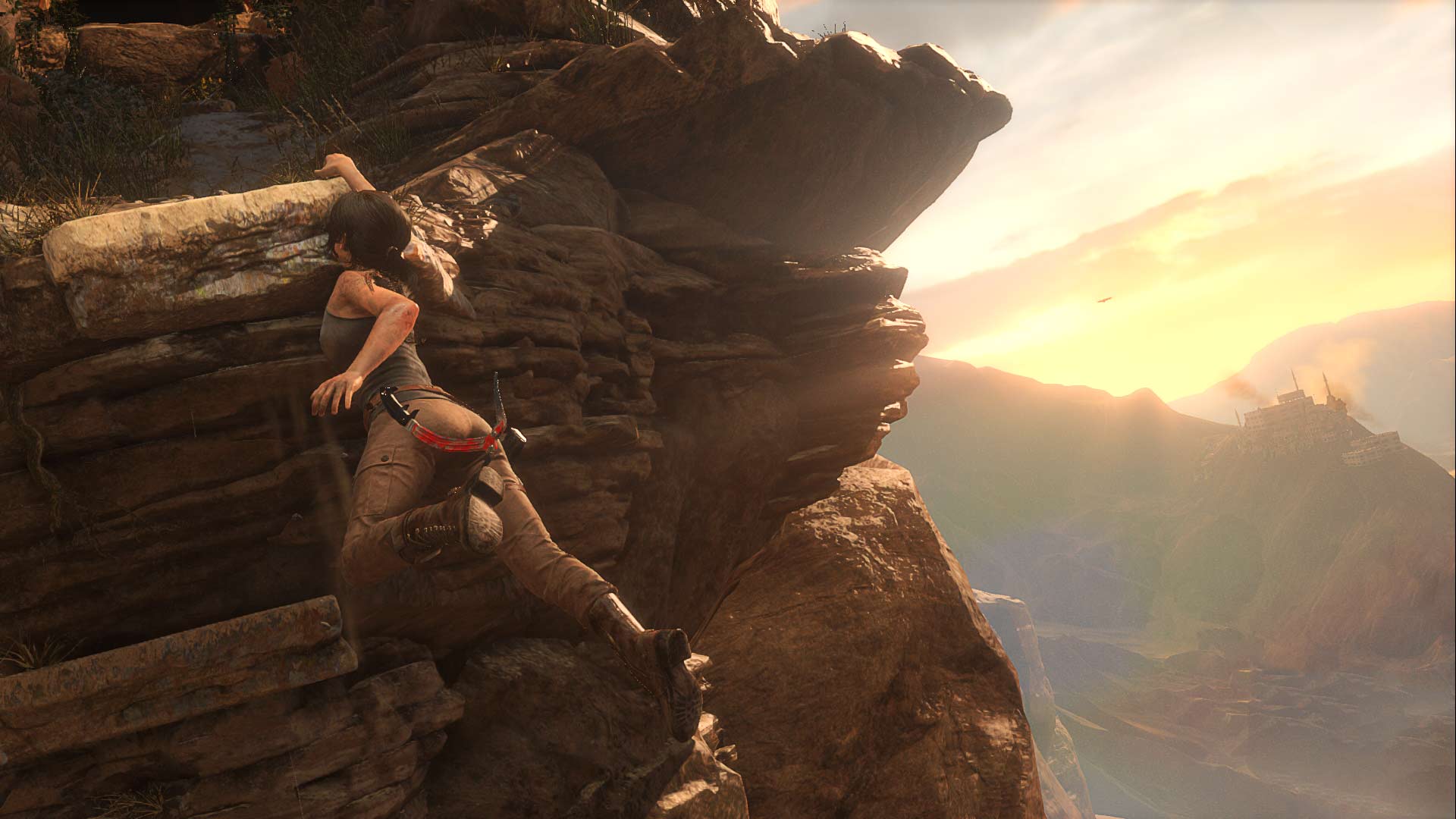
If that plotline sounds familiar, it's because we've seen it plenty of times before, usually with more Harrison Ford and Sean Connery. At least Rise of the Tomb Raider doesn't go for the low-hanging fruit of the Arthurian Holy Grail. Here, the fabled source of immortality is developed in the Eastern Roman (Byzantine) Empire. That's way different!
Lara Croft and the Refined Gameplay
The reboot of Tomb Raider was one of the best games of 2013. Borrowing heavily from the playbook of the Metroid, Castlevania and Batman: Arkham series, it blended gunplay and platforming nearly perfectly. Rise of the Tomb Raider fixes all the little problematic bits, and delivers one of the best Metroidvania experiences on current-generation consoles. Over the course of the 16-plus hours of gameplay, Lara acquires more and more equipment (such as grenade arrows, poison arrows and sturdy arrows meant for climbing) that allows her to access more and more of the small map.
Putting her on the same badass plateau of action as heroes like Batman has finally managed to elevate Lara Croft
The map's size is definitely a downer. The mountain Lara is trapped on feels small compared to the expansive island of 2013. While the first open-world portion of the map is admittedly enormous — and features multiple puzzles that can't be solved until the end of the game — all of the other areas are relatively linear. It's more frustrating than it is game-breaking. What is available is so thoughtful and fun that it feels like a bummer when you realize you've solved every problem there is to solve, and have no reason to revisit the ice caves, Byzantine ruins and abandoned Soviet bases.
Lara Croft and the Pacing Issue
Save points in the game are designed to look like campfires. It's a cool holdover from the 2013 game, in which Lara would struggle to get to the campfires to rest and recuperate from each harrowing encounter while she also upgraded her skills and weapons. That made sense from both story and game-design perspectives.
However, the sequel is a little too liberal with the campfire placements. Yes, I do want to recuperate after barely surviving the collapse of some Byzantine ruins, but do I really need to set up camp in the claustrophobic sewers under them? Oh, is that a huge war between [SPOILERS] and [SPOILERS]? Better hunker down by the fire on this teetering tower and watch the giant balls of flame fly by!
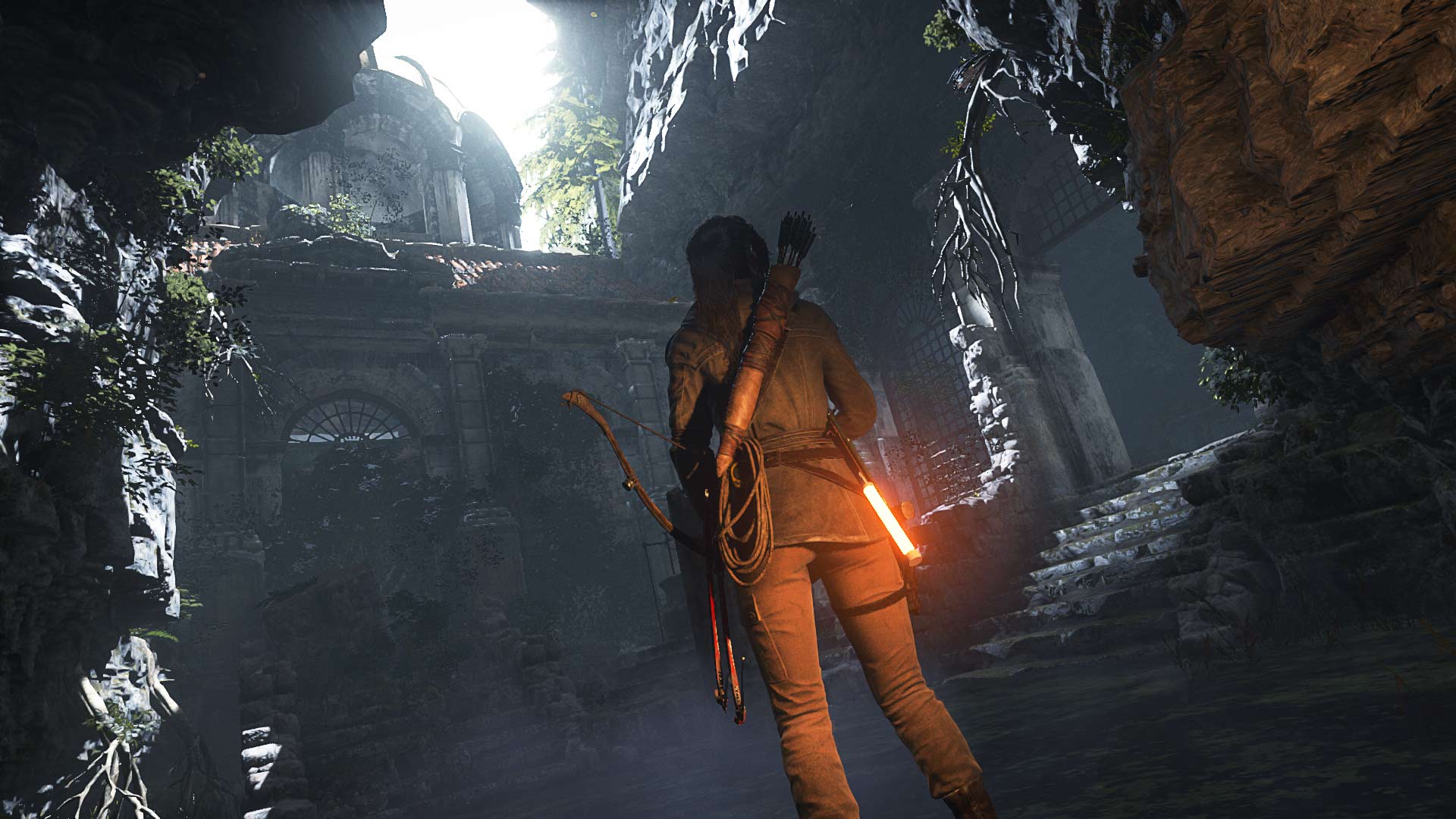
While the placement of the fires still make perfect sense from a gaming perspective, they just don't work in a narrative context, particularly because many of them allow you to travel back to earlier locations in the game. You know when it's a terrible time to get that last artifact in the beginning area of the game? When you're knee-deep in the climax.
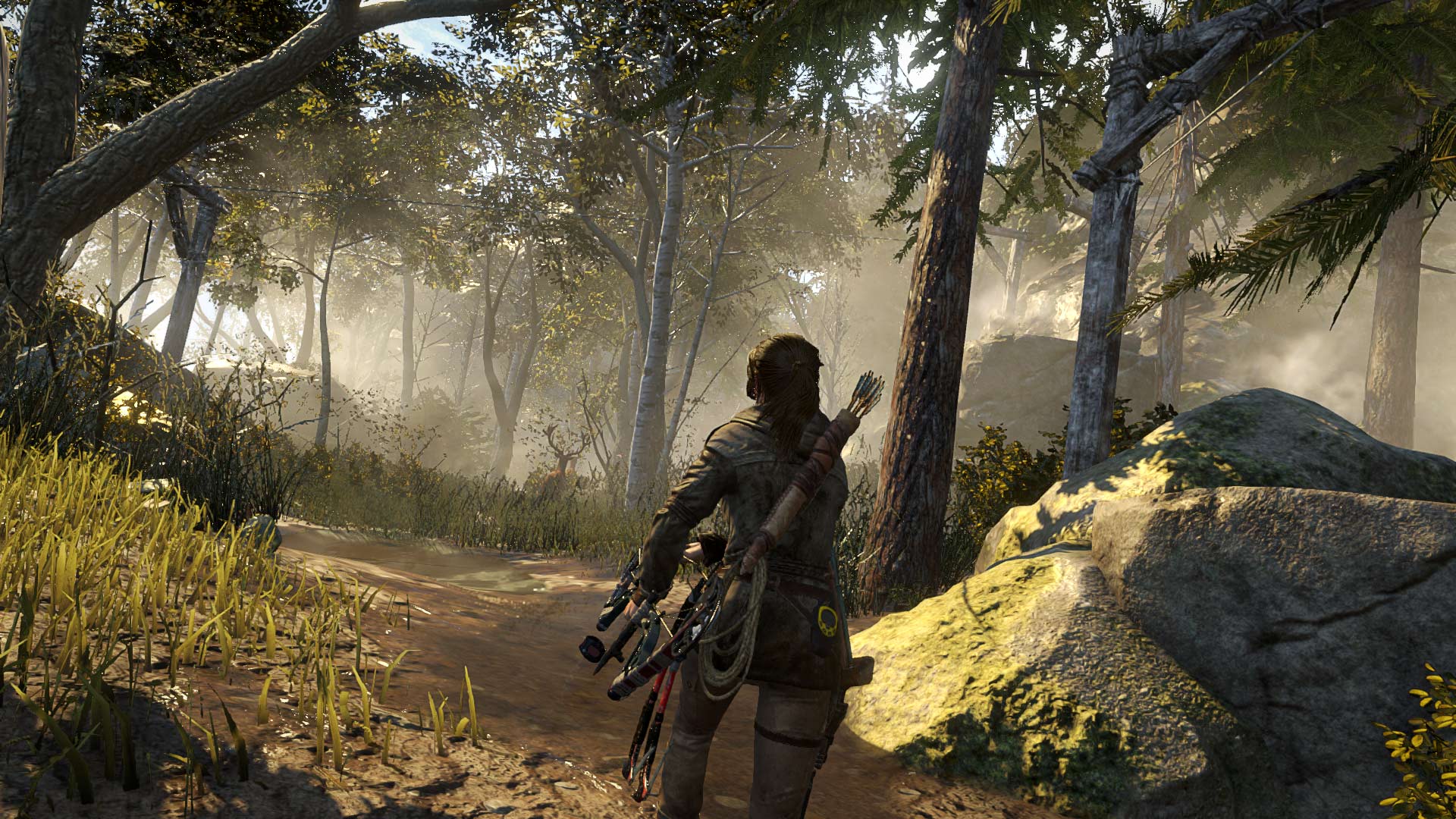
This leads to the biggest problem in the game for me: There's no natural breathing space between the last two quarters of the game. If you're a completionist (like myself) and want to snag every last relic, challenge and leftover mission, then you have two choices: You can shout "I'm out!" and walk away from the life-and-death situation that's unfolding so that you can putter around a Soviet lumber camp, or you can power through the challenge, save the world and miss out on some sweet Xbox Live achievements and the sense of accomplishment that comes from finishing a game in just one go.
In the grand scheme of things, that certainly seems like a minor problem —and it says something about the quality of the game that it's my biggest complaint. But man, am I irritated about having to do a second play-through just to score my 100 percent completion achievement.
Lara Croft and the Diminished Fetishization
The Tomb Raider franchise is known for more than just Lara's unquestionably voluminous assets (though they're significantly smaller in the rebooted franchise) and her ability to steal stuff that belongs in a museum.
There's also the countless brutal death scenarios in which she finds herself. Lara is stabbed, dropped, choked, shot and drowned. About the only way I haven't seen Lara perish is peacefully, in her sleep.
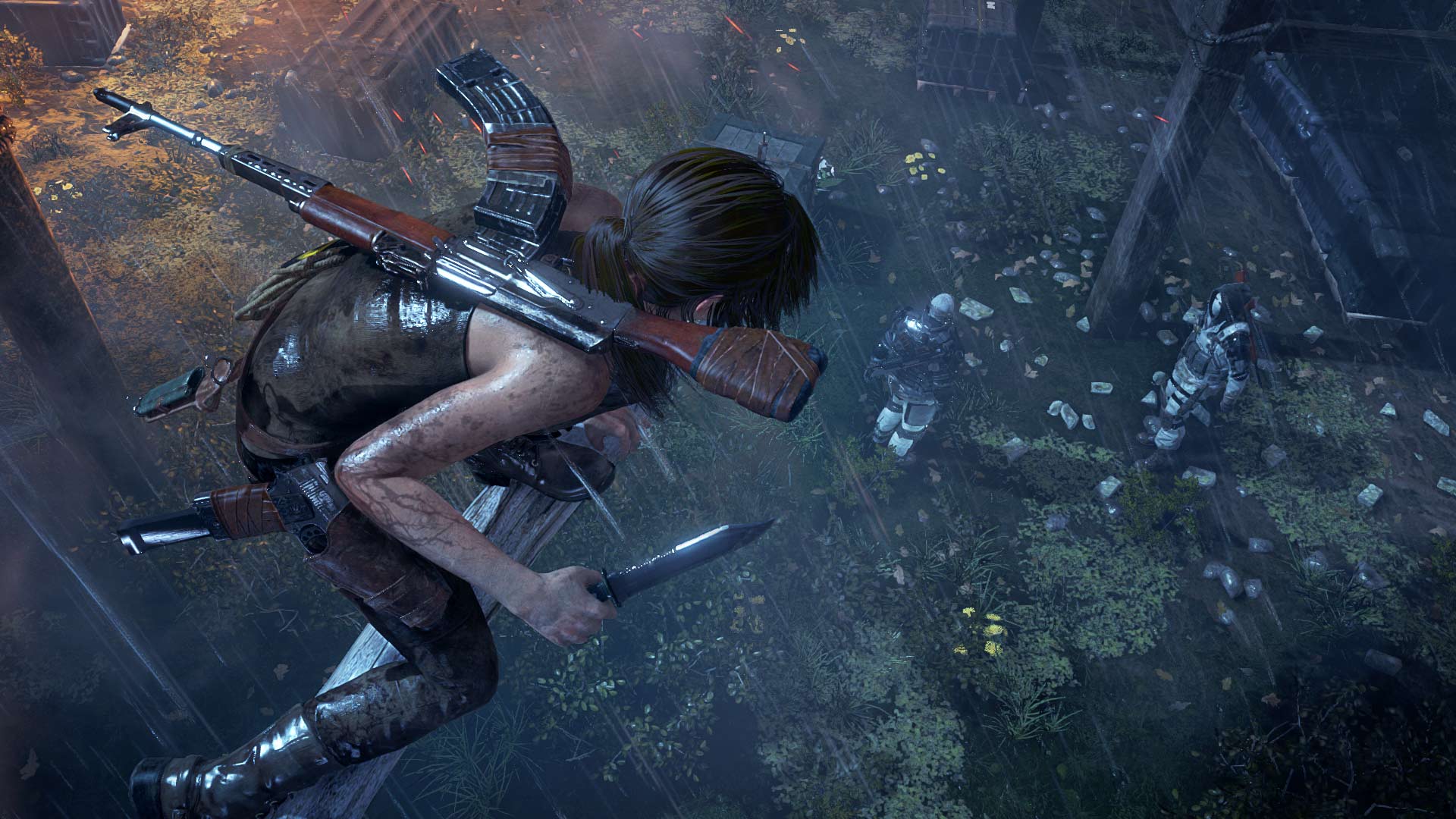
Those scenarios still occur in Rise of the Tomb Raider. When things get fatal, the screen goes black and white, and you hear her scream as she falls, or gasp as she chokes to death while swimming in a cistern. However, there are very few brutal death scenes. The most gruesome death sequence comes early in the game, when she is skewered by a trap and stares into the screen with vacant eyes as her brain drips down a sharpened stick. It's easy enough to avoid the scenario after that first time. The other traps are obvious enough to be seen from space, and a well-placed arrow deactivates them.
I am absolutely OK with that. In fact, I applaud it.
Often, the 2013 reboot of the franchise drifted into '70s grindhouse territory, in which it felt like you were playing the game just to watch Lara be tortured. That might have been a vitally necessary part of the feminist conversation when I Spit on Your Grave came out in 1978, but in 2015, it feels like exploitation for exploitation's sake — especially considering that we don't have to watch Batman and Nathan Drake undergo the same gratuitously grotesque experiences.
Lara Croft and the Bottom Line
Lara's grunts of pains were some of the most memorable moments of the 2013 game, but in Rise of the Tomb Raider, her most memorable moment comes when she tells a character to bar a door just as she moves through it. Lara Croft, utilizing some of the most satisfying action gameplay of the year, is a woman on a mission, and you're absolutely sure she's going to bring pain to whomever she finds on the other side of the threshold. Putting her on the same badass plateau of action as heroes like Batman has finally managed to elevate Lara Croft from her previous place as nothing more than "that one with the boobs." But don't worry: She's still raiding all the tombs she finds, and while that might be ethically questionable, it's still a ton of fun.

